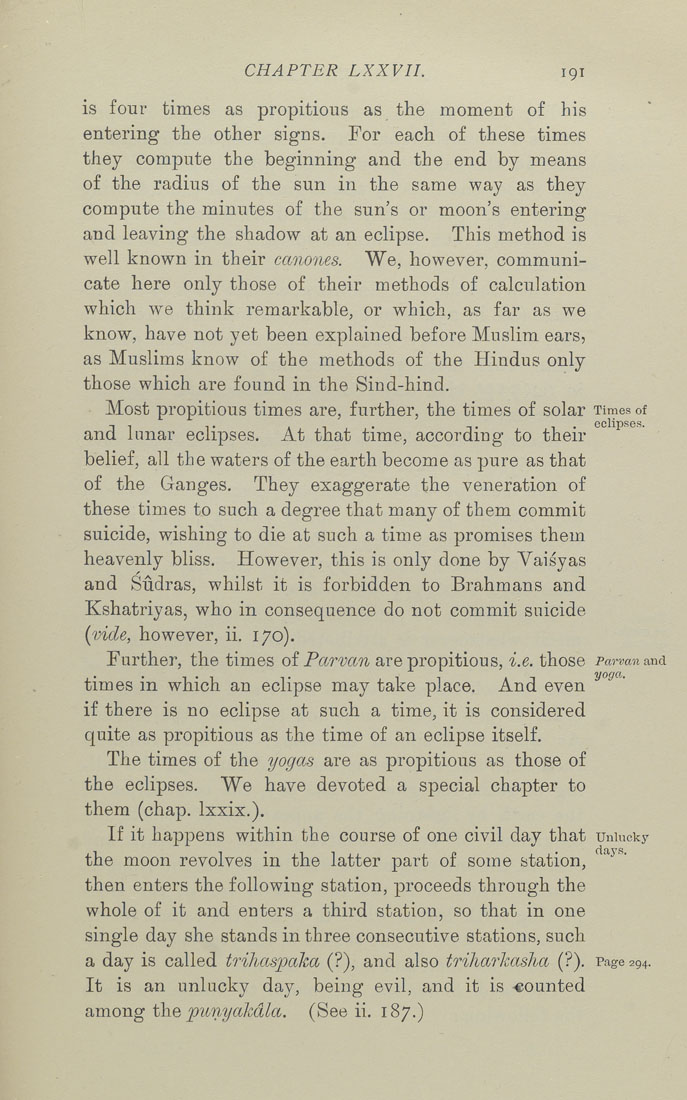CHAPTER LXXVII. 191
is four times as propitious as the moment of his
entering the other signs. For each of these times
they compute the beginning and the end by means
of the radius of the sun in the same way as they
compute the minutes of the sun's or moon's entering
and leaving the shadow at an eclipse. This method is
well known in their cctnones. We, however, communi¬
cate here only those of their methods of calculation
which we think remarkable, or which, as far as we
know, have not yet been explained before Muslim ears,
as Muslims know of the methods of the Hindus only
those which are found in the Sind-hind.
Most propitious times are, further, the times of solar Times of
-, , ,. AT- -1 • 1 • eclipses.
and lunar eclipses. At that time, according to then-
belief, all the waters of the earth become as pure as that
of the Ganges. They exaggerate the veneration of
these times to such a degree that many of them commit
suicide, wishing to die at such a time as promises them
heavenly bliss. However, this is only done by Vaisyas
and Sudras, whilst it is forbidden to Brahmans and
Kshatriyas, who in consequence do not commit suicide
(vide, however, ii. 170).
Further, the times of Pctrvctn are propitious, i.e. those Parvan and
times in which an eclipse may take place. And even
if there is no eclipse at such a time, it is considered
quite as propitious as the time of an eclipse itself.
The times of the yogas are as propitious as those of
the eclipses. We have devoted a special chapter to
them (chap. Ixxix.).
If it happens within the course of one civil day that uniucky
the moon revolves in the latter part of some station, °'^^"
then enters the following station, proceeds through the
whole of it and enters a third station, so that in one
single day she stands in three consecutive stations, such
a day is called trihaspaka (?), and also triharkasha (?). Page 294.
It is an unlucky day, being evil, and it is counted
among the ^2m^a/i:;d/a.. (See ii. 187.)
|








